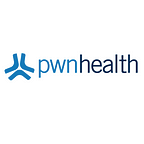Did you know that deaths due to cancers in the colon or rectum are the leading cause of cancer death in the United States? Did you also know, though, that there are ways to catch these cancers at an early, more treatable stage, or even before the cancer even fully develops?
Based on the report by the National Cancer Institute issued in 2018, only two-thirds of Americans eligible for colorectal cancer screening had that screening done. There are many reasons people may avoid getting the screening — fear of discomfort, embarrassment, squeamishness, or fear of finding out one has cancer. In these days of the pandemic, an obvious excuse is the fear of being exposed to the COVID-19 virus. The number of people getting screened for colon cancer has dropped in the past year. However, NONE of those excuses compares with the benefit of detecting cancer at an early stage or before it even develops.
The “gold standard” for screening for colorectal cancer is a colonoscopy. A colonoscopy can find and remove pre-cancerous polyps before they even have a chance to develop into cancer. For the person at average risk, they are recommended to have their first scope at the age of 45, but only need to have them repeated every 10 years, if no polyps are found. On the other hand, there are less invasive options that can screen one’s stool for signs of cancer. While this may not sound very pleasant, it is easy to do and can be done from the comfort of your own home. These tests need to be done every 1–3 years and followed up with a colonoscopy if any possible signs of cancer are found.
Click here to learn more about your screening options by the American Cancer Society.
There are some risk factors that could put a person at higher risk to develop colorectal cancer than the average individual. These include a close blood relative who has had colorectal cancer or colon polyps, a personal history of colon polyps, a personal history of inflammatory bowel disease (like ulcerative colitis or Crohn’s disease), a known inherited risk factor that increases the risk for colorectal cancer (like Lynch syndrome) or a personal history of having had radiation to the belly or pelvic area due to previous cancer treatment. These individuals may be recommended to start their colorectal cancer screening at earlier ages and perform them more frequently.
When it comes to the bottom line, whether you are at average risk or increased risk, there is no excuse to avoid the screening. You come away with either peace of mind that nothing was found or armed with the knowledge that you did everything you could to catch that cancer at the earliest, most treatable stage. So, call your doctor, throw your mask on and #GetScreened #TomorrowCantWait.
Authored by Robin H. King, MS, CGC, Director, Genetic Operations and Programs at PWNHealth
For more information on PWNHealth and to learn more about our vaccination support services, visit www.pwnhealth.com or email partner@pwnhealth.com.
